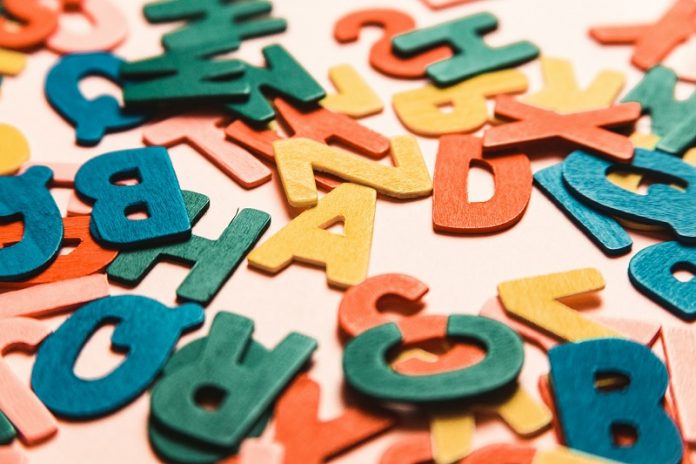
Bilingualism, or the ability to speak two languages, has long been recognized for its cognitive benefits, especially for older adults.
Researchers have discovered that being bilingual may help delay the onset of Alzheimer’s disease by up to five years compared to those who speak only one language.
This effect adds to other lifestyle habits that can keep the brain resilient as we age.
A recent study, published in the journal Bilingualism: Language and Cognition, involved researchers from Concordia University in Canada.
The team, led by Ph.D. candidate Kristina Coulter and her co-author Natalie Phillips, used neuroimaging methods to investigate how bilingualism might impact brain health in older adults.
Phillips is a professor in the Department of Psychology and holds the position of Research Chair in Sensory-Cognitive Health in Aging and Dementia at the university.
Larger Hippocampus in Bilinguals
One key finding from the study is that older adults who are bilingual seem to have larger hippocampi compared to their monolingual counterparts with similar levels of education, age, and cognitive function.
The hippocampus is a vital region of the brain involved in learning and memory. It’s also one of the first areas affected by Alzheimer’s disease.
The researchers compared the brain characteristics of monolingual and bilingual older adults across different groups: those with no cognitive issues, those showing early signs of cognitive decline, and those already diagnosed with Alzheimer’s.
They observed that monolingual participants with mild cognitive impairment or Alzheimer’s showed more shrinkage (atrophy) in the hippocampus over time.
In contrast, bilingual participants maintained the size of their hippocampus, even if they were at higher risk or had been diagnosed with Alzheimer’s.
Coulter explains that the hippocampus volume in bilingual participants remained stable across all groups, suggesting that bilingualism might provide some form of “brain maintenance.”
Brain Resilience and Its Components
This concept of brain resilience refers to the brain’s ability to adapt and cope with the effects of aging. There are three main elements to this resilience: brain maintenance, brain reserve, and cognitive reserve.
- Brain maintenance involves the brain keeping its shape and function over time. Activities like bilingualism, combined with healthy habits like exercise, good sleep, and a balanced diet, are believed to contribute to this.
- Brain reserve refers to the size and structure of the brain. People with a larger brain reserve have more “extra” brain matter that helps them maintain normal functions, even if some parts are damaged due to aging or conditions like Alzheimer’s.
- Cognitive reserve is the brain’s ability to find new ways to perform tasks or compensate for damage. If one area is affected, the brain can rely on other regions to keep working. This reserve is built up through mentally stimulating activities and social engagement throughout life.
Specific Findings and Future Research
Although the researchers found that bilingualism was linked to better brain maintenance in the hippocampus, they didn’t find evidence of increased brain reserve in language-related areas or more cognitive reserve in regions impacted by Alzheimer’s.
Speaking more than one language may not directly protect these specific brain functions but still supports overall brain health.
Natalie Phillips points out that being bilingual is just one of many ways to stay mentally and socially active. Both mental and social engagement are crucial for keeping the brain healthy as we age.
This study was unique because it followed individuals from those with normal cognitive abilities to those at risk of Alzheimer’s, and even to those with the disease, to observe the possible impact of bilingualism on brain health.
The researchers plan to explore whether multilingualism (speaking more than two languages) might also benefit brain networks similarly.
For this study, they used data from the Comprehensive Assessment of Neurodegeneration and Dementia Study (COMPASS-ND) and the Consortium for the Early Identification of Alzheimer’s Disease-Quebec (CIMA-Q). These datasets provided comprehensive information about older adults at various stages of cognitive decline.
The Bottom Line
In summary, this study suggests that speaking two languages might help older adults maintain a healthier brain, particularly in the hippocampus.
While more research is needed to understand all the details, bilingualism appears to be one of several activities that can help the brain cope with aging and reduce the impact of Alzheimer’s disease. Researchers continue to investigate how a multilingual lifestyle could offer even greater benefits to brain health.
If you care about heart health, please read studies about how eating eggs can help reduce heart disease risk, and herbal supplements could harm your heart rhythm.
For more information about health, please see recent studies about how drinking milk affects risks of heart disease and cancer, and results showing strawberries could help prevent Alzheimer’s disease.
The research findings can be found in Bilingualism: Language and Cognition.
Copyright © 2024 Knowridge Science Report. All rights reserved.



